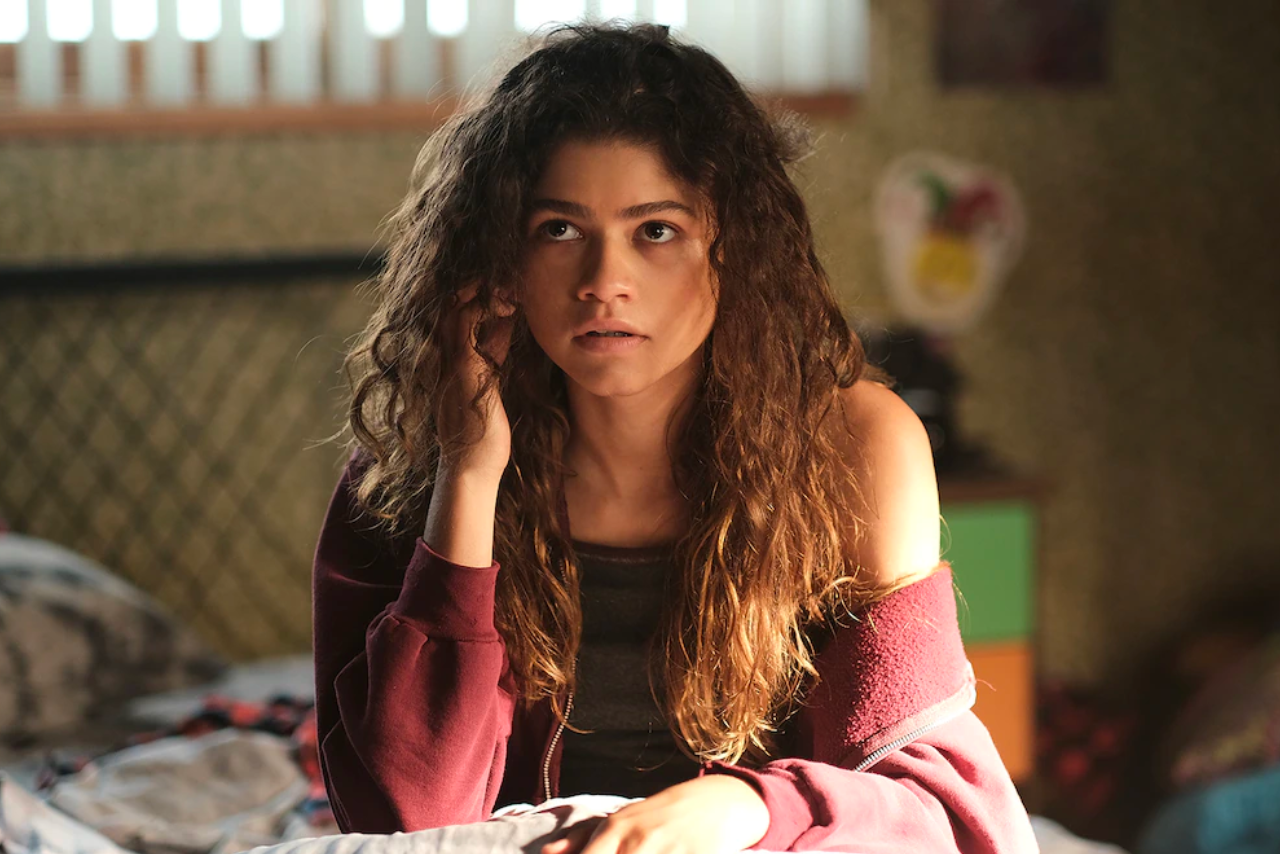There are hundreds of television shows released every year. While all characters are important and unique in their own ways, it seems as though writers often neglect one particular demographic: black female leads. In celebration of Black History Month, I have compiled a list of five television shows with strong representation. These shows span across themes and genres, and have each gone above and beyond in regards to treating their black female characters as more than a token role.
- Abbott Elementary
This fairly new network sitcom has taken the entertainment industry by storm, appearing to help revive the standard twenty episode season arc that has been all but lost due to streaming services adopting the 10 episode approach. “Abbott Elementary” was created by Quinta Brunson, who stars as Janine Teagues, an elementary school teacher at an under-funded school in Philadelphia. The series includes an ensemble cast, although most of the characters are black. The series is about the everyday life of teachers and students in a public school, and all of the characters have incredibly distinctive and well thought-out storylines. Janine is an overly ambitious and kind woman, and her co-workers often get annoyed at her tendency to “find and fix” any problem at the school. As the frontrunner of the show, her antics are seen as lovable and quirky to a majority of the audience. Something interesting about “Abbott Elementary” is the way the writers acknowledge the differences between the white and black characters.
The second black female lead of the series is Barbara Howard. Barbara is one of, if not the oldest teacher at Abbott, and has watched the school grow over the years. Her biggest passions in life (aside from teaching) are her Christian faith and her husband and family. She is incredibly close friends with fellow teacher Melissa Schemmenti. She is strong-willed and seen as an inspiration by all of the faculty at Abbott, particularly by Janine. Her old-fashioned ways of doing things sometimes frustrates Janine, but Janine sees her as a mentor nonetheless.
Rather than adopting a “colorblind” approach, “Abbott Elementary” often acknowledges issues with racism. A common way for them to do so is by poking fun at one of the white teachers at Abbott, Jacob Hill. Jacob is a white, gay, millennial who can come across as tone-deaf. Although he tries his hardest to be as educated as possible, his attempts to “bridge the gap” between races often fall short. In a recent episode titled “Valentine’s Day,” Ava Coleman, the school’s unqualified principal, sits in on one of Jacob’s classes after a student’s father complains about a white teacher trying to teach black history to black students. Rather than shut down the lesson, Ava is inspired by it and instead informs the father that Jacob teaches black history every day, not just during Black History Month. Ava’s character comes across as self-involved and a bit ditzy, as she is incredibly active on social media and regularly finds new fads to become enthralled with. Many television series include stories regarding racism, but “Abbott Elementary” goes above and beyond by illustrating the lived experience of black educators in America.
- How To Get Away With Murder
“How To Get Away With Murder” aired from 2014-2020 and had six seasons. The show follows Annalise Keating, a successful professor and criminal defense attorney, as she assembles a group of her best students to assist with cases at her law firm. Issues arise as the mystery behind a missing student unravels and the clues begin to point toward Annalise’s own husband. Although the show has an ensemble cast, the storyline of its lead, in specific, is the most noteworthy.
In addition to being a strong-willed, badass black woman, Annalise Keating is also a canonically bisexual main character, something that is incredibly uncommon within television. She has relationships with men and women over the course of the series, and both are treated with dignity and value. Despite the struggles and loss Annalise faces over the course of the series, her lack of ability to trust the people surrounding her, and the constant betrayal brought upon her by everyone in her life, she remains level-headed and successful throughout a majority of the series.
- Euphoria
“Euphoria” has captivated viewers since its premiere in 2019. The series follows Rue Bennett, played by Zendaya, a black teenager struggling with a drug addiction. After losing her father at a young age due to a crippling disease, she developed a pill addiction which morphed into a dependency on several hard drugs. She lost many friends during this time, and her addiction caused a huge rift in her family life. Rue’s race is not brought up explicitly often on the series, but her treatment by the people surrounding her does reflect some racist tendencies, such as being referred to as less-than others due to her drug problem.
Rue is also canonically a lesbian, and in love with her classmate Jules Vaughn. The portrayal of Rue’s home life is done with a specific level of care. The intimate look into the trauma of a family who has already dealt with the loss of a parent and is currently dealing with the potential to lose a daughter/sister is raw and painful. Loss is not something exclusively black families face, but it is something they face often.

- Ginny and Georgia
Netflix’s “Ginny and Georgia” was met with controversy after several questionable scenes… (the oppression olympics), but it has a lot of good moments too. The series focuses on mother and daughter duo Ginny and Georgia Miller. Georgia has spent her entire life trying to protect her daughter Ginny–and eventually her son Austin, as well– and would do anything to make their lives better than hers ever was. When the family moves to a new town and starts a new life following the mysterious death of her second husband, everything seems to be turning around for them.
As a young mixed girl in a predominantly white town, however, Ginny faces a lot of issues caused by her peers regarding her race. When she calls attention to her A.P. English teacher’s lack of material being taught in regards to black Americans, he decides the best way to rectify the situation is by prompting Ginny to choose a book by a black author that she believes best describes the “black experience” in America. She goes home, struggling to decide whether or not to take on the assignment. When she eventually does bring a book for the class to read, her teacher then forces her to lead the class discussion. She decides to stand up for herself and walk out of the classroom, dropping the class and accepting a spot in a low-level English class, essentially sacrificing her education in the process. Ginny neglects to tell her mom about the event because she is worried her mom will take things too far when seeking revenge. Within the series, Ginny deals with a lot of internal struggles surrounding her relationship with her mom. She is aware of the horrible things that Georgia has done, but Georgia sees things differently, looking at everything as a sacrifice that she made to survive, both for herself and for her children.
When Ginny confesses to her father that she is self-harming, she finally begins getting help. Although the therapy can only be sort of beneficial as Ginny must withhold the truth a lot of the time, surrounding herself with her father and his family allows her to feel seen and heard by people who understand the struggles of growing up black in America, which is something that her mother will simply never be able to understand. The series does a great job of distinctively showing the differences between the two experiences while still maintaining the love and respect that the characters have for each other, regardless of their differences.
- Shameless
“Shameless” is the longest running series on this list, airing from 2011-2021. The eleven season television show surrounds the Gallagher’s, a large family living in the Southside of Chicago. Although the Gallagher’s are a primarily white family (with the exception of Frank’s youngest son Liam, who was black), one of the main characters of the series was Veronica Fisher, Fiona Gallagher’s best friend and a close neighbor of the family. Veronica was strong-willed, tough, and always knew how to get exactly what she wanted. Her main love interest throughout a majority of the show was Kevin Ball, the owner of Frank Gallagher’s bar of choice. Veronica was beautiful and a badass, but she also had big goals. She worked as a hospital cleaner but was eventually fired for stealing medical supplies, which she used to help the Gallaghers many times. She also had a part-time gig as a cam girl, and was very comfortable with her sexuality.
Later on in the series Veronica is revealed to be bisexual after having an affair with a woman named Svetlana. Eventually her marriage with Kevin is repaired. Veronica is a mother and very loving. She cares greatly for those around her, and is always willing to help when needed. She is, however, smart in that she will often use her favors as leverage. Although Veronica is not the focus of the series, her character is refreshing and loved by most fans to this day.
While this may be a great list of recommendations, these five shows are far from the only series with well-developed and well-treated black female characters. I encourage you to look into different genres of television, as your next great watch might just be right around the corner.


